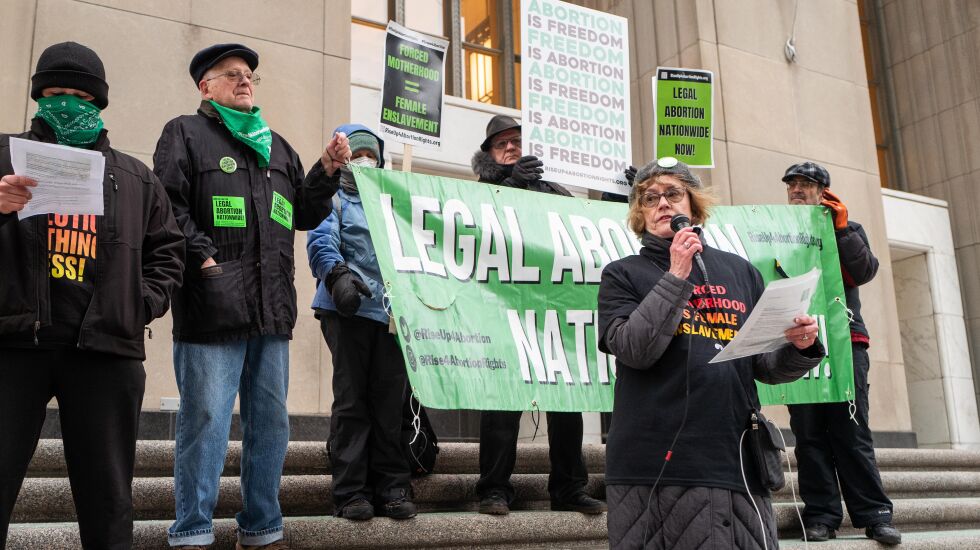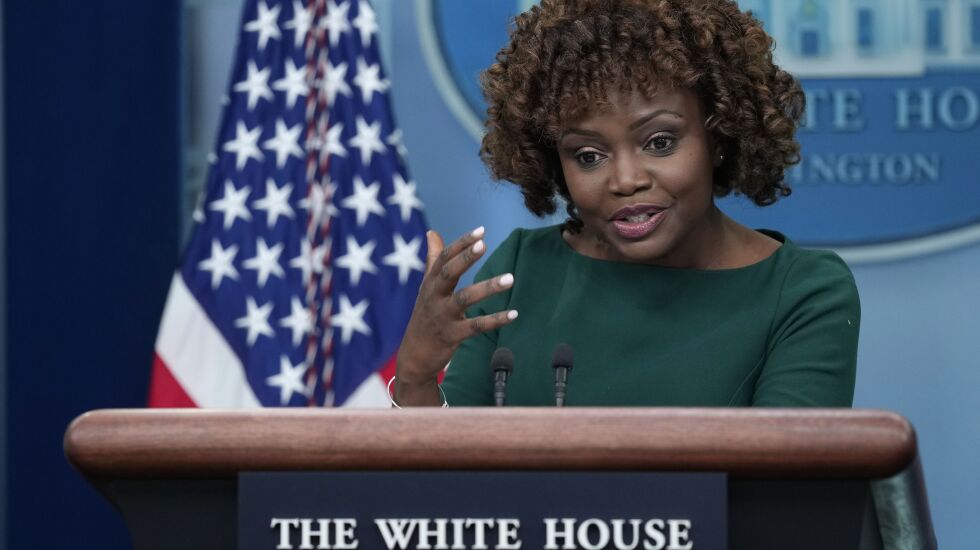
Deerfield-based Walgreens says it will not sell abortion pills in states in which Republican attorneys general have threatened legal action — despite the drug being legal in some of those states.
The decision prompted immediate condemnation from Gov. J.B. Pritzker, who met with Walgreens CEO Roz Brewer about it Friday, and a demonstration outside the pharmacy’s West Loop offices accusing them of surrendering “to the demands of the right wing-Christian fascist attorneys general.”
After the meeting with Brewer, Pritzker’s office said the governor “expressed his deep concern about their position and urged them to rethink their stance.” The governor also pledged to help Walgreens become certified to provide abortion medication in Illinois, and in states that have not already outlawed abortion medication.
Walgreens made the policy change after 20 Republican attorneys general wrote the pharmacy a letter threatening legal action if the drug was distributed in their states.
Politico on Thursday evening reported the company has responded to the AGs, assuring them they will not dispense the abortion pills either by mail or at their stores in those states.
“I can confirm we have responded to the state attorneys general letter to Walgreens dated February 1 by indicating we do not intend to dispense Mifepristone in their respective states at this time,” Fraser Engerman, Walgreens senior director of external relations told the Sun-Times.
“We intend to be a certified pharmacy and will distribute Mifepristone only in those jurisdictions where it is legal and operationally feasible.”
The policy change will affect four states in which the abortion pill is legal but is facing either legislative or legal challengers — Kansas, Alaska, Iowa and Montana. The company noted it was being “cautious” and was monitoring developments in those states.
Pritzker took to Twitter on Thursday to denounce the decision.

“Women across the nation will be denied their right to access healthcare they are legally entitled to because of this awful corporate decision. @Walgreens must rethink this policy,” Pritzker tweeted. “To all the other pharmacy providers, we’ll stand with you so you can provide this lifesaving care.”
The decision will not affect Illinois, where the abortion drugs are legal. According to a source with direct knowledge of the matter, Walgreens, CVS and Rite-Aid are among the three pharmacies in Illinois that have requested certification to be able to sell the pill. That status is pending.
At her news briefing on Friday, White House Press Secretary Karine Jean-Pierre did not address the Walgreens decision specifically, but called the Republican legal threats over abortion medication the “product of overreach by Republican officials” to regulate women and their health care.

“It’s backwards. Again, it’s dangerous, and it’s severe and in stark contrast to the president and the commitment that he has to leave these decisions between a woman and her doctor,” Jean-Pierre said.
In Chicago, a group of abortion rights advocates gathered outside Walgreens’ offices at the Old Post Office on Friday afternoon to speak out about the company’s decision, calling it an “outrageous” and “dangerous” precedent.
“Walgreens has capitulated to the demands of the right wing-Christian fascist attorneys general to deny women, girls and anyone who can get pregnant in their states completely without legal basis in almost all cases,” said Jay Becker of Rise Up 4 Abortion Rights. “And it’s just a very serious step, another escalation on the war on women and our rights.”

“That’s why we’re here. Because we demand that they follow the law and supply abortion medication to anyone who needs it,” Becker said.
Illinois Attorney General Kwame Raoul, along with 23 of his Democratic counterparts in other states, last month sent Walgreens and CVS a letter applauding the competing pharmacies for their decision to offer the abortion pills in their stores.
In the letter Raoul assured both companies that their decisions to dispense Mifepristone and Misoprostol were on solid legal footing and were supported by legal precedent.
Contributing: Pat Nabong







